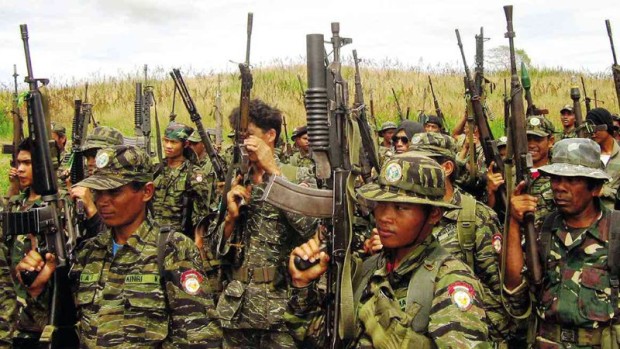MILF ready to help Duterte gov’t stop illegal drug trade
OZAMIZ CITY — The Moro Islamic Liberation Front (MILF) is open to collaborating with the administration of President Duterte in the campaign against illegal drugs.
The MILF’s offer to help the government came after President Duterte named, on Thursday, the five active and retired police generals whom he was accusing of coddling at least three drug lords whom he also named in the same speech.
In November 2015, the MILF central committee issued a directive to its political and military leaders to help stifle the brisk trading of shabu (methamphetamine hydrochloride) in Moro communities in Mindanao. But security agencies objected to such an arrangement, fearing this would breach the ceasefire accord between the Philippine government and the MILF.
“With the election of Duterte as president of this country, and his hard-line policy on drugs, the campaign of the MILF against drugs finds comfort,” read a recent editorial in the MILF’s official website.
“In fact, a possible understanding or arrangement can be worked out. This can be done through the existing mechanisms of the peace process such as the Ad Hoc Joint Action Group (AHJAG) and the Coordinating Committee on the Cessation of Hostilities (CCCH),” the group further said.
Article continues after this advertisementThe AHJAG’s mandate is “to interdict and isolate kidnap-for-ransom groups and other criminal gangs operating in MILF areas and communities” while the CCCH monitors implementation of the ceasefire agreement between the parties.
Article continues after this advertisementIn the past, the AHJAG was instrumental in the campaign against Al-Qaeda-linked terrorists and major kidnap-for-ransom groups in central Mindanao as well as in combating the problem of cattle rustling in the hinterlands of Lanao del Norte.
The MILF, which forged a peace pact with government in 2014, explained that it was compelled to launch the anti-shabu campaign as “the drug menace is already destroying the future of the Bangsamoro people and hence should be confronted head on.”
The group said it had “identified hundreds to thousands of drug pushers especially in Central Mindanao” through the campaign which, already “achieved some successes… and saved so many users or addicts from further destruction.”
But the group admitted that its people could only do so much because of the “very limited resources and facilities” under its disposal “to rehabilitate drug addicts and to punish drug pushers.”
The MILF said the supply of illicit drugs traded in Moro communities has been coming from areas where it had less influence.
It lamented that some of those engaged in drug trafficking have come from government. “Several of them won during the recent elections using drug monies to buy votes.”
In the MILF’s view, a holistic approach is needed to address the drug problem. “The greater challenge in this campaign is not to secure hundreds to thousands of pushers and users surrendering but to ensure that the sources, the pushers, and users are effectively contained.”
Prior to the official rebel directive, it has been common knowledge that the local command of the MILF armed wing, Bangsamoro Islamic Armed Forces (BIAF), covering parts of Lanao del Norte and Lanao del Sur, has been running after drug users and traders.
The BIAF in Lanao operates a rehabilitation facility for drug dependents, and arrests, detains and metes out penalties to suspected drug traders.
The Lanao campaign resembles the Operation “Tokhang” in Davao City that the Philippine National Police (PNP) now wants replicated throughout the country.
Sources have told the Philippine Daily Inquirer the local BIAF keeps a list of suspected traders “who were given time to mend their ways” while also being tracked if they transferred to another area. SFM
